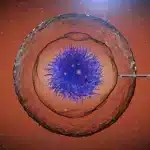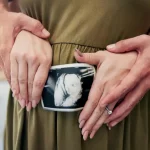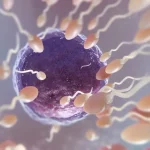
Introduction
If you’re considering becoming an egg donor—or are an intended parent selecting one—you might wonder:
“Does a donor’s age matter?”
The short answer is yes. Egg quality and fertility decline with age, which is why most clinics and agencies set upper age limits for donors.
But age isn’t everything. In this blog, we break down the differences between donating eggs in your 20s vs. your 30s, and what intended parents should know about donor age and success rates.
Why Age Matters in Egg Donation
A woman is born with a finite number of eggs. Over time:
- Egg quantity decreases
- Egg quality declines
- Risk of chromosomal abnormalities increases
By the time a woman reaches her early 30s, the likelihood of producing high-quality, genetically normal eggs begins to decrease gradually—and more steeply after age 35.
Egg Donation in Your 20s
Pros:
- Peak fertility (especially ages 21–27)
- Higher egg yield per cycle
- Better embryo quality and implantation rates
- Fewer medications needed to stimulate ovaries
- Lower risk of miscarriage and genetic anomalies
- Higher likelihood of repeat donation eligibility
Considerations:
- Must demonstrate emotional and psychological maturity
- Younger donors may need additional support during the process
Most egg donors at EggDonors4All are between 22–29, representing the ideal age range.
Egg Donation in Your 30s
Donating eggs in your early 30s is still possible—with some caveats.
Pros:
- Many women still have strong fertility into their early 30s
- More life experience and maturity
- May have proven fertility (e.g., previous children)
Challenges:
- Lower egg reserve and hormone response
- Fewer mature eggs retrieved per cycle
- Slightly reduced embryo quality
- Increased risk of genetic abnormalities (especially after 34)
- Not eligible at all after age 34–35 in most programs
At EggDonors4All, we accept donors up to age 32, and only with strong hormone and fertility testing results.
[Insert Image: Graph showing egg quantity decline by age]
Alt text: Female fertility chart by age, showing ideal donor range in 20s
What the Research Shows
- Donors under 30 have a 70–80% embryo viability rate
- Live birth rates are 10–15% higher with eggs from women under 30 vs. over 30
- Most IVF clinics cap donor age at 32–34
- ASRM recommends egg donors be under 33 years old for fresh cycles
Fertility Testing Still Matters
Regardless of age, every donor must undergo:
- AMH (Anti-Müllerian Hormone) testing
- FSH and Estradiol labs
- Antral follicle count ultrasound
- Genetic carrier screening
- Psychological evaluation
Some donors in their early 30s may outperform younger donors if they have excellent hormone levels and a strong ovarian reserve.
For Intended Parents: What to Look For
When choosing a donor:
- Prioritize fertility test results and embryo history
- Ask your agency about past donation outcomes
- Consider whether the donor has completed cycles with good results
- Trust your clinic to recommend candidates with proven egg quality
EggDonors4All only lists donors who meet strict medical and age requirements.
Real Experiences
“We chose a 28-year-old donor with great AMH levels and had 12 healthy embryos. Now we’re expecting twins!”
– Amanda & Jared, New York
“I donated at 32. My cycle went great, and I was told I had better numbers than some 25-year-olds!”
– Nadia, 32, Toronto
“Our agency explained everything about donor age. It helped us make a confident choice.”
– Anjali & Rakesh, California
Conclusion
Age is a key factor in egg donation, but it’s not the only one. A great donor is someone who meets medical, emotional, and ethical standards, and whose age supports strong egg quality.
If you’re thinking of donating—or choosing a donor—EggDonors4All is here to guide you with facts, not guesswork.
📞 Want to learn more about age and donor eligibility?
Call 1-212-661-7177 or email info@eggdonors4all.com for a personalized consultation.
About the Author
Dr. Kulsoom Baloch
Dr. Baloch is a board-certified fertility expert specializing in egg donor selection and ovarian function assessment. She helps donors and recipients make age-appropriate, evidence-based decisions.

Dr. Kulsoom Baloch
Dr. Kulsoom Baloch is a dedicated donor coordinator at Indian Egg Donors, leveraging her extensive background in medicine and public health. She holds an MBBS from Ziauddin University, Pakistan, and an MPH from Hofstra University, New York. With three years of clinical experience at prominent hospitals in Karachi, Pakistan, Dr. Baloch has honed her skills in patient care and medical research.






WinWinCasino Zambia, interesting! Always keen to see what’s happening across the border. Check this out: winwincasinozambia
Tried out the betaappcasino recently. It is new but I like it. I like something fresh. Seems promising overall. I would recommend checking it so you get to try first. Give it a spin: betaappcasino
Hey there! So I tried gologame for the first time last night. The site is easy to navigate and the live dealers are actually pretty engaging. If you’re looking for live action, this is a solid option. gologame
bet123login looks interesting! Login was simple and fast. Now to see if I can actually win something. Good luck to us all! You can register and play here: bet123login